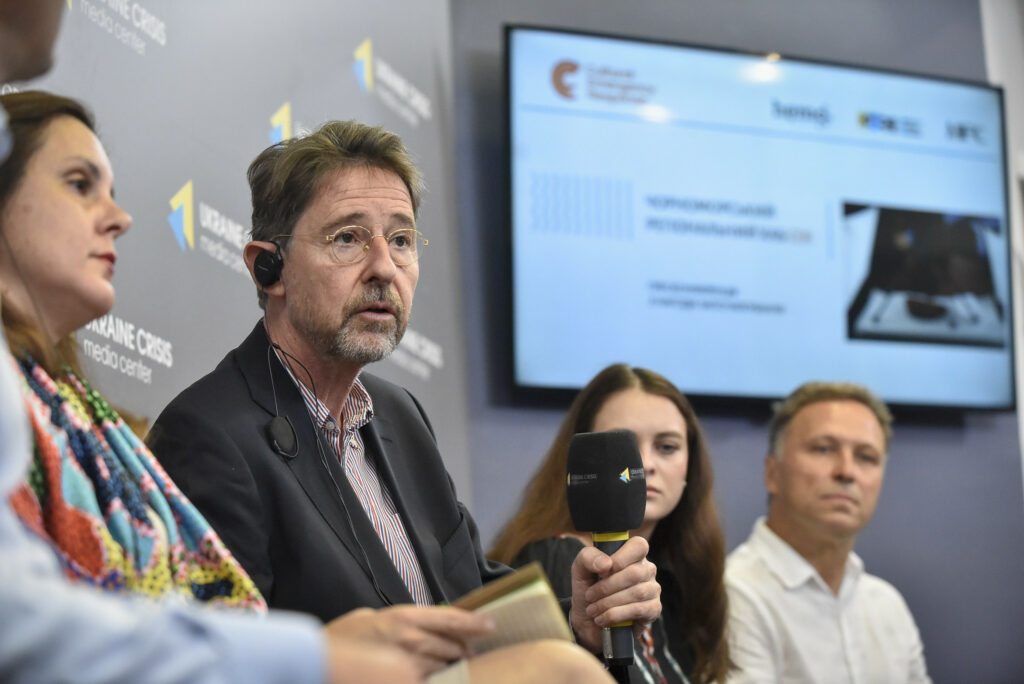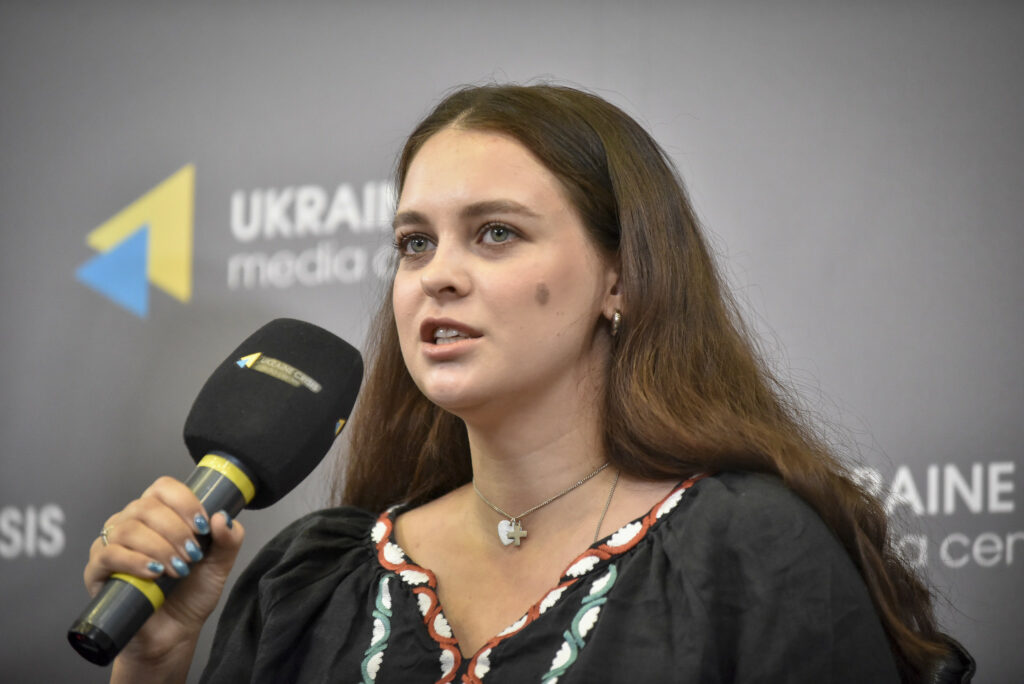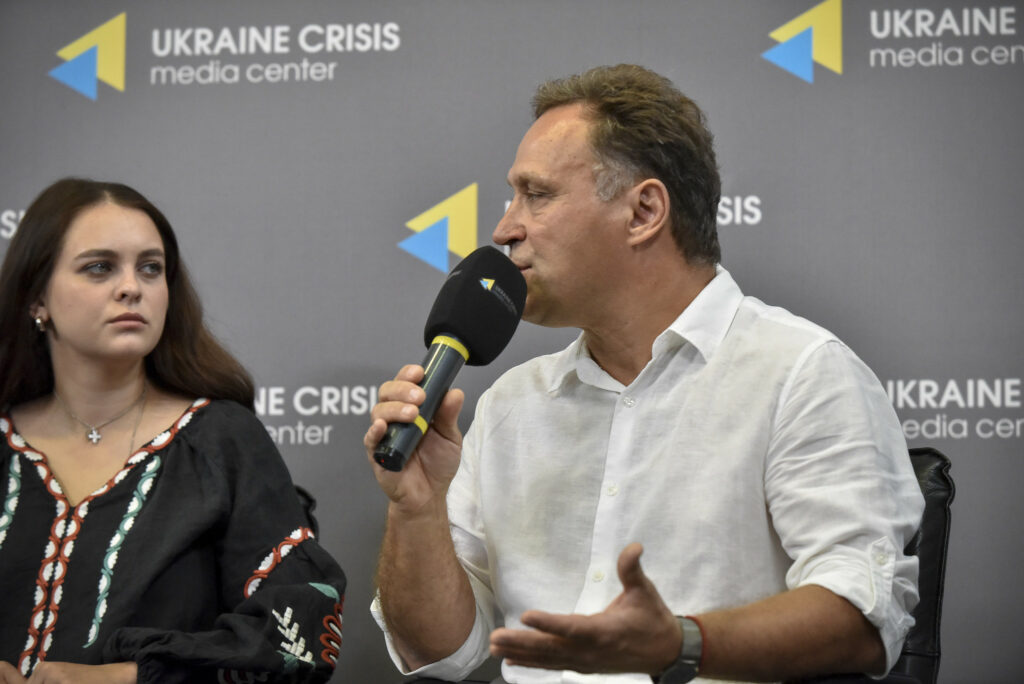The Black Sea Regional Hub, the launch of which was announced by the Netherlands non-governmental organization Cultural Emergency Response (CER) at the Ukraine Crisis Media Center, will contribute to strengthening the capacity to preserve cultural heritage in emergency situations.
“This is an extremely important event for us. – emphasized Robert Quarles van Ufford, Head of the Department of Cultural Cooperation of the Ministry of Foreign Affairs of the Netherlands – The war is currently affecting a huge number of cultural sites in this country. The support provided by the Netherlands to Ukraine over the past two and a half years is mainly focused on the military and infrastructure sectors. But at the same time, it also includes an extremely important component of supporting the cultural sphere. It is very close to the hearts and minds of your people.”
Vanessa Fraga Prol, the Cultural Emergency Response Head of Programmes, noted that the hub was created in partnership with Ukrainian NGOs – the Agency for Cultural Resilience (ACURE), the Ukrainian Heritage Monitoring Laboratory (HeMo) and the MUSEUM FOR CHANGE.
“We want to create a structure in order to be more prepared and coordinated, as well as to respond as efficiently as possible. We must fully make use of all the knowledge gained by these three organizations over the years in the important work they are doing. This knowledge should be shared. Cultural heritage is the foundation of our society. Quite often it is disregarded,” she said.
The Black Sea regional hub will be the fifth in the global network created by CER. The first hub was created in Central America to help those affected by natural disasters. Besides, there are hubs in the Caribbean countries, the Western Balkans and Lebanon. Each of the Ukrainian participants in the project has his own experience in organizing work on the preservation of cultural heritage. For example, the Museum for Change initiative was launched in Odesa in 2017 to improve the communication of the city’s museums.
“It all started on the basis of the Odesa National Art Museum. Activists got together and started raising funds. First, a new printer was purchased to improve the quality of the tickets so that they were similar to European rather than Soviet tickets. The number of projects increased, and when Russia’s full-scale invasion began, we realized that we had gained some experience. We prepared for the war, bought packing materials, and installed satellite internet. We understood that something had to be done if the war begins. And therefore, on the first day, we acted quickly – removed the exposition of the first floor, packed everything and hid it. Unfortunately, other cultural institutions in Odesa and throughout Ukraine did not have those opportunities, and we, within the framework of the Museum for Change NGO, began to look for partners and attract funds to preserve the heritage and support the teams of cultural institutions”, – said the director of the Museum for Change Daria D’yakova.
Since the beginning of the full-scale invasion, the organization has helped more than 100 institutions throughout Ukraine, starting with the purchase of all necessary materials for packaging and digitizing collections, and ending with finding and arranging premises for the transportation and storage of cultural heritage objects.
Vasyl Rozhko, founder of the Ukrainian Heritage Monitoring Lab, head of the Tustan NGO informed the participants about the Lviv project.
“We are documenting the destruction of Ukrainian heritage during the war and are working on digitizing the museums. We go on expeditions to document the destruction. We have already visited 15 regions, and documented about a thousand objects. This is done, firstly, to monitor everything so that our cultural heritage can be recovered after the war, and secondly, to initiate criminal proceedings against Russia in international courts,” he said.
Speaking about the importance of the creation of the Black Sea regional hub, Vasyl Rozhko admitted that resources are not unlimited, and they should be coordinated.
“Some haven’t received help yet, some need something else, now we can distribute our efforts and do more,” said the founder of the Heritage Monitoring Lab.
Director General of the National Museum of the Revolution of Dignity, co-founder of the Agency for Cultural Resilience Ihor Poshyvailo recalled how in the first days of the war, foreign partners kept asking everyone what they could do to help?
“It seems to me that this is the answer to this question. This is the creation of new structures that unite and help us act more efficiently. We are talking today not only about the establishment and launch of the hub, but also about problems and challenges for us,” he added.
According to Ihor Poshyvailo, the new hub combines everything that was done before.
“It continues, emphasizes, and strengthens. For example, there is a resource base on the basis of the Agency for Cultural Resilience. It will be available online very soon. We have methodological materials on the evacuation of cultural values translated for the first time and distributed among the cultural environment. That is, there are such focal and general things. Besides, there will be created a portal within the hub, where the necessary material will be concentrated and collected. We will also have an office in Kyiv, where there will be not only a hotline, but also, if necessary, a rapid response group will be formed,” said the Director General of the National Museum of the Revolution of Dignity.





